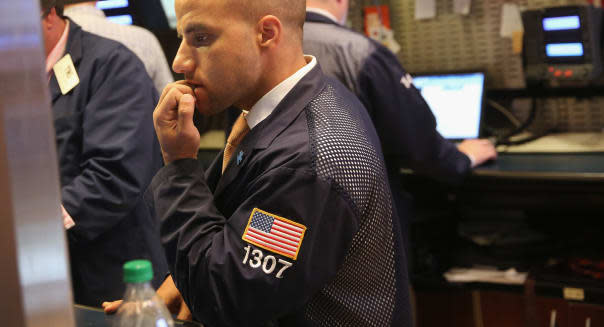See You in September: Why Investors Should Wait to Buy

By Matthew J. Belvedere
The crisis in Syria won't have a long-term impact on the stock market, Howard Ward, Gamco Investors (GBL) chief investment officer for growth equities, told CNBC on Thursday.
"We still believe stocks are the only game in town, looking out beyond the crisis in the Middle East right now," Ward said in a "Squawk Box" interview. "We don't think it will have any lasting impact."
But even without the Mideast, September had already promised to be a month of uncertainty -- with the federal debt ceiling talks and the possibility of Fed tapering -- and perhaps a "better buying opportunity," Ward said. "All of those are just going to be a blips on the long term."
Sponsored Links
On the same day the government sharply increased its second quarter economic growth estimate, he said, "There's really nothing in the economic forecast over the next 12 months that's bearish for stocks in my opinion."
The S&P 500 index (^GSPC) closed Wednesday slightly higher at 1,634 -- its first gain in three sessions.
Explaining his case for the "opportunity in stocks," Ward said his prediction for an additional 6.5 percent increase in the S&P 500 by year-end is rooted in a now-and-then look at the market.
"We're down 5 percent from the all-time high in early August. [But] we're 4 percent above the 2007 peak in the market."
In a further illustration of why he thinks stocks are undervalued, he said, "Earnings this year will be about 27 percent higher than in 2007. And the 10-year Treasury today, which is at a 2-something [percent], was 5 percent in 2007-- nearly double what it is today."
Against that backdrop, Ward applied a 15 price-to-earnings multiple on current expectations for next year's earnings and said, "You get about 1,740 on the S&P as a year-end target this year."
He added that the rotation out of cash and fixed-income into stocks has begun and will "continue until further notice."

